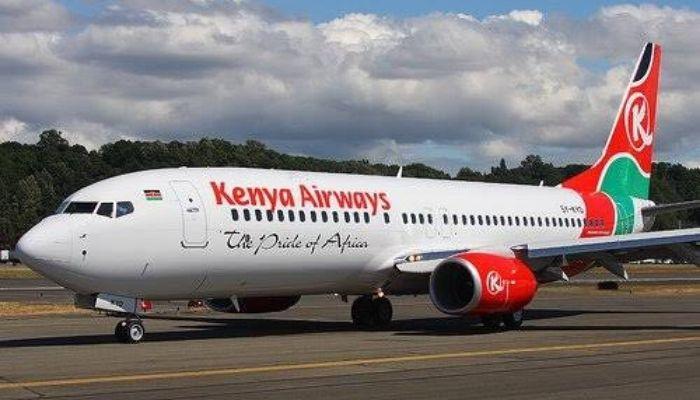Kenya Airways has paid the fine imposed by the Nigerian Civil Aviation Authority (NCAA) following accusations of mistreating Nigerian passengers, including the case of Gloria Omisore. The airline completed payment of the sanction on Wednesday, September 17, 2025, ending weeks of negotiations and public scrutiny.
The consumer rights breach stemmed from NCAA investigations into what it described as improper handling of passengers by Kenya Airways at Jomo Kenyatta International Airport (JKIA) in Nairobi. The Gloria Omisore episode was among the highlighted cases. After NCAA raised the matter, Kenyan diplomatic representatives, airline officials, and NCAA leadership held talks aimed at resolving the dispute amicably.

Michael Achimugu, Director of Public Affairs & Consumer Protection at NCAA, explained that the fine is part of NCAA’s mandate to ensure that airlines operating in Nigeria respect passenger rights. He stressed that NCAA’s sanctions are not simply punitive but corrective—designed to make sure airlines improve protocols for handling customers, from boarding to complaints resolution.
While commending Kenya Airways for complying with the fine, NCAA noted that compliance with payment does not resolve all outstanding issues. The time frame for addressing the specific infractions, according to the sanctions notice, had already lapsed. NCAA said it will continue monitoring the airline’s operations to guarantee future adherence to Nigeria’s consumer protection standards.
The airline, one of Africa’s major carriers, maintains regular service into Nigerian airports and has acknowledged the NCAA’s findings. Representatives of Kenya Airways did not publicly contest the resolution after discussions with NCAA. Relations between the airline, Nigerian aviation authorities, and the Kenyan High Commission in Nigeria were involved in smoothing over diplomatic and regulatory dimensions of the case.
Stakeholders see this incident as more than just a regulatory enforcement—it reflects growing expectations from passengers and regulators that airlines must adhere strictly to consumer rights, including courtesy, transparency in boarding processes, and adequate redress when disputes arise. This case has brought public attention to how airlines manage boarding denials, travel documentation, and customer communication.
Achimugu emphasised that the outcome of this case will serve as a precedent. “Kenya Airways has a long-standing relationship with Nigeria, and we look forward to improvements in their operations within the country,” he said. He pointed out the necessity for airlines to uphold consumer protection rules, noting that airline sanctions like this help build trust among passengers and reduce incidents of mistreatment.
For passengers, this development might translate into better assurance of their rights, especially when dealing with issues like being denied boarding, delays, or lack of effective customer service. Consumer advocates believe that enforcement of penalties and public attention to such infractions encourage better fees disclosure, better boarding handling, and more accountability.
Looking ahead, NCAA has made it clear it will not relent on oversight. Airlines operating in Nigeria, whether domestic or international, are expected to review their customer handling policies, align with NCAA’s consumer protection framework, and ensure their staff are trained accordingly. For Kenya Airways, the immediate task is demonstrating that the fine payment is followed by improved passenger service standards.
Ultimately, this episode highlights the rising importance of consumer protection in Nigeria’s aviation sector. With more Nigerians depending on air travel for business and leisure, authorities are under pressure to ensure international carriers respect their rights. Kenya Airways’ compliance is a reminder to other airlines that accountability is no longer optional.
The Nigerian aviation industry is at a point where passengers expect both safety and dignity in their travel experience. As regulators like NCAA intensify their oversight, airlines that invest in customer care and operational transparency will likely gain stronger trust and loyalty from travelers, securing their place in one of Africa’s most competitive aviation markets.
In conclusion, by paying the NCAA fine for passenger mistreatment, Kenya Airways has resolved one regulatory dispute but may still face the challenge of implementing changes to prevent recurrence. The case reinforces Nigeria’s push to empower passengers, enforce accountability in aviation operations, and strengthen consumer protection—goals that NCAA says remain central to its oversight mission.
Support InfoStride News' Credible Journalism: Only credible journalism can guarantee a fair, accountable and transparent society, including democracy and government. It involves a lot of efforts and money. We need your support. Click here to Donate
